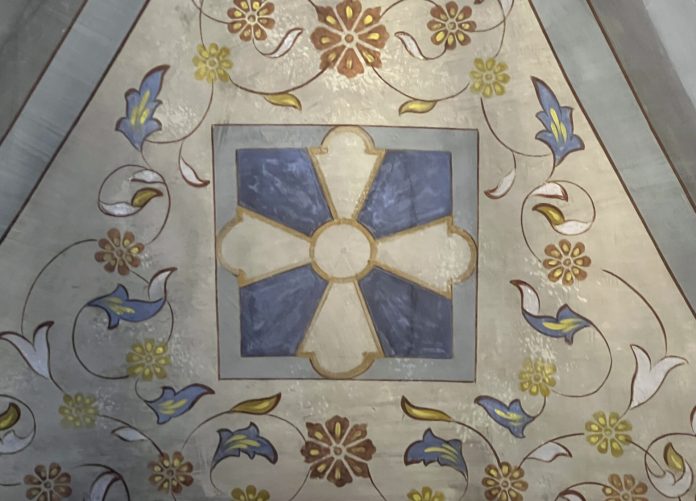30 July 2024
GENEVA, Switzerland and ISTANBUL, Türkiye
The Lutheran World Federation (LWF) and the Orthodox Church have issued a joint statement on the addition of the Filioque clause to the Nicene-Constantinopolitan Creed, a theological issue that has divided the Eastern and Western Church traditions for almost a thousand years.
The word ‘filioque’ (‘and the Son’ in English) to describe the procession of the Holy Spirit, was added by the Latin Church to the Creed centuries after its composition to counter Arianism but the Eastern Church has always protested this insertion.
In a Common Statement of the Joint International Commission on Theological Dialogue between the LWF and the Orthodox Church, both partners “suggest that the translation of the Greek original (without the Filioque) be used in the hope that this will contribute to the healing of age-old divisions between our communities and enable us to confess together the faith of the Ecumenical Councils of Nicæa (325) and Constantinople (381).”
The Commission developed the statement at its 18th Plenary Session held in Cairo, Egypt, in May this year. The Commission emphasized that the Creed is a foundational liturgical and doctrinal statement and expressed hope for a renewed focus on Trinitarian theology in the life of churches. “We both affirm the full divinity and personhood of the Holy Spirit, which was expressed in different ways in the eastern and the western traditions.”
The Common Statement is the result of over 40 years of dialogue and ecumenical commitment between the LWF and the Orthodox Church. It is offered as a sign of reconciliation for the 1700th anniversary of Nicæa in 2025. It also marks a hopeful step toward greater theological understanding and unity between Lutheran and Orthodox churches.
The full Common Statement follows:
COMMON STATEMENT ON THE FILIOQUE
The Joint International Commission on Theological Dialogue Between the Lutheran World Federation and the Orthodox Church
We, representatives of The Lutheran World Federation and the Orthodox Church, have come together in a spirit of love and Christian communion to discuss the Church-dividing issue of the procession of the Holy Spirit. We both affirm the full divinity and personhood of the Holy Spirit, which was expressed in different ways in the eastern and the western traditions. We know that the Filioque was inserted in the Nicene-Constantinopolitan Creed by the Latin Church in response to the heresy of Arianism centuries after the Nicene-Constantinopolitan Creed’s composition. The Eastern Church has always protested this insertion. As part of the Latin tradition, the reformers inherited the Creed with the Filioque and did not consider it problematic. Valuing this old and most venerable ecumenical Christian text, we suggest that the translation of the Greek original (without the Filioque) be used in the hope that this will contribute to the healing of age-old divisions between our communities and enable us to confess together the faith of the Ecumenical Councils of Nicaea (325) and Constantinople (381).
The Nicene-Constantinopolitan Creed is a doctrinal statement used in the liturgy. The people of God pray the Nicene-Constantinopolitan Creed and in that prayer their faith is shaped by the Triune God. Renewed focus on the original wording of the Nicene-Constantinopolitan Creed may encourage renewed theological reflection on the Trinity and the role of the Holy Spirit.
Moreover, we both affirm that in our Trinitarian doctrine the Father is the cause (αἴτiος) of the generation of the Son and of the procession of the Spirit. The Orthodox understand that the Filioque was often meant to underline the relationship between the Son and the Spirit and the Lutherans are aware that in the Orthodox tradition the Spirit is sometimes conceived as proceeding (ἐκπορευόμενον) through the Son. We are also aware that there are other ways to indicate the relationship of the Son and the Spirit. We hope that the exploration of the formula “through the Son” used by Maximus the Confessor, John of Damascus, and Tarasius of Constantinople and relevant views by Gregory of Cyprus and Gregory Palamas, might facilitate our common effort to reach further agreement regarding the procession of the Holy Spirit.
27 May 2024
The Joint International Commission on Theological Dialogue between The Lutheran World Federation (LWF) and the Orthodox Church first met in 1981 in Espoo, Finland, initiated by Ecumenical Patriarch Demetrius. This ongoing dialogue involves representatives from LWF member churches and various Autocephalous Orthodox Churches. They have produced several theological texts on topics such as ecclesiology, Holy Scripture, sacraments, and ministry. These efforts aim to foster understanding and cooperation between the two traditions, promoting mutual respect and theological enrichment.

